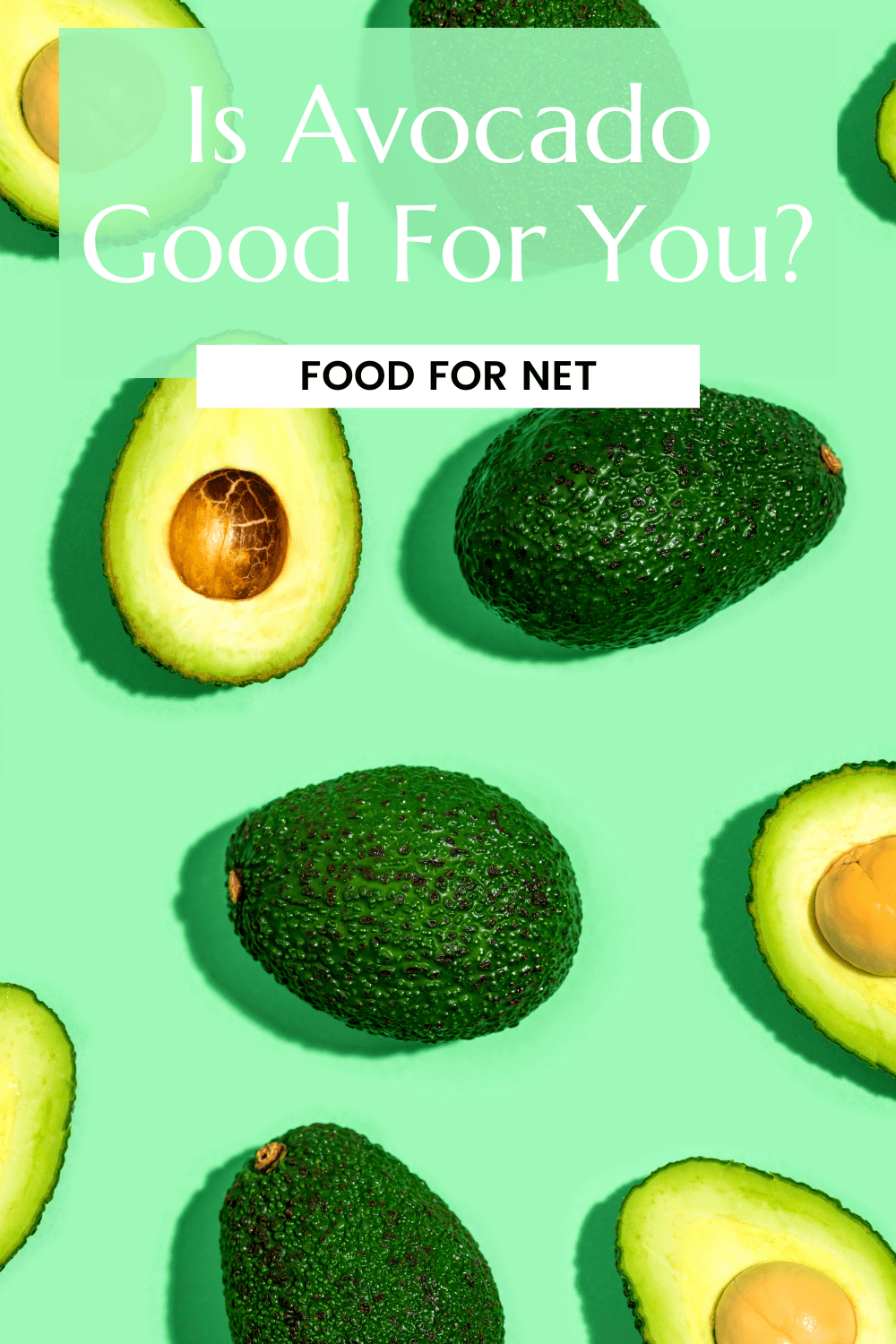
How can you not love avocados? They’re a creamy and delicious treat, one that’s also a rich source of healthy fats. Still, are avocados good for you?
It’s easy to see why you might see the fruit as being unhealthy, given that it is high in fat and calories. Many of us are already consuming too many calories. Adding more to the mix might not be a good idea at all.
Still, you can pair avocados with many healthy ingredients and use them in countless ways. There’s no shortage of avocado-based recipes to try as well, including avocado toast. So, let’s look at the benefits you get from avocado and whether the creamy fruit is a good idea.
P.S. Avocados are also somewhat frustrating as they go from underripe to overripe so fast. Sometimes you might even need to freeze your avocados to avoid wasting them.
Are Avocados Good For You?
- Avocado Nutrition
- Benefits Of Avocados
- How Avocados Can Be A Problem
- Can Avocados Help You To Lose Weight?
- How Much Avocado Is Too Much?
- Final Thoughts?
Avocado Nutrition
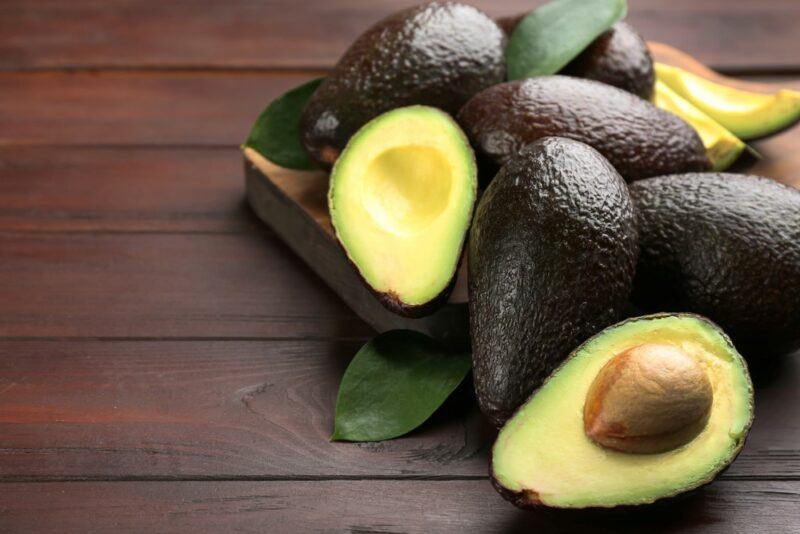
Avocados are incredibly unusual. Unlike most other fruits, they’re very low in sugar and high in fat. In fact, a whole avocado contains just 1.3 grams of sugar, along with almost 30 grams of fat.
You also get around 320 calories, 13.5 grams of fiber, and 4 grams of protein in that serving. While the exact amounts vary somewhat depending on the size of your avocado, the variety, and where it is grown, those numbers are a good guide.
There are plenty of interesting nutrients too, including more than 50% of your daily vitamin K intake, 41% of your requirements for folate, and 26% for vitamin B6. Other significant nutrients include niacin, potassium, manganese, and magnesium.
Benefits Of Avocados
A Source Of Heart Healthy Fats
Avocados are high in fat (roughly 15% fat by weight). This is an incredibly unusual feature for fruit, but thankfully most of the fats are in the form of monounsaturated fat. This type of fat helps to decrease your LDL cholesterol and may lower your heart disease risk as well.
Plus, monounsaturated fats aren’t linked to the same concerns as saturated fats. They’re generally seen as being very healthy instead.
Also remember that dietary fat isn’t as bad as we often assume. Fat itself is simply a source of energy and can easily be part of a healthy diet.
Decreases Heart Disease Risk
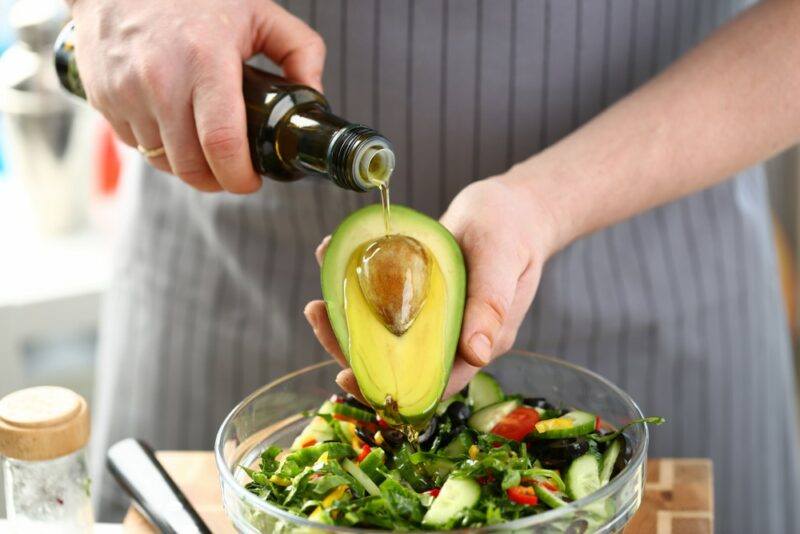
Healthy fats aren’t the only feature of avocados that helps with your heart. Avocados are also rich in potassium. This nutrient helps your heart to contract and can decrease blood pressure.
It’s easy to see how that effect is useful, as high blood pressure is a key risk factor for heart disease. Plus, a surprising number of us don’t get the potassium we need.
That’s not all, some of the other nutrients should help with your heart health as well. Then there’s the fiber, which helps to protect against diabetes, heart disease, and some other health issues.
A Perfect Keto Food
Avocados feature heavily on the keto diet, as they contain a large amount of fat, along with few carbs and little protein. This macronutrient balance makes avocados an easy way to get your macros on target when following a keto diet.
The popularity of avocados means that there are many keto avocado recipes to try for yourself, including smoothies and some finger foods.
Help With Diabetes Management
Avocados can be useful for diabetes management too. After all, they’re naturally low in sugar and offer plenty of fiber, so they’re not going to spike your blood sugar levels.
Many people find that avocados don’t affect their blood sugar levels at all, which is fantastic news.
The lack of blood sugar effect is incredibly important, as most other types of fruit will affect blood sugar levels. Such a relationship means that diabetics might cut down their fruit intake too far, which then means they’re not getting the powerful plant-based compounds that fruit have to offer.
Avocados are an easy way to get some important compounds back into your diet, while still keeping your blood sugar levels controlled.
They’re Creamy And Versatile
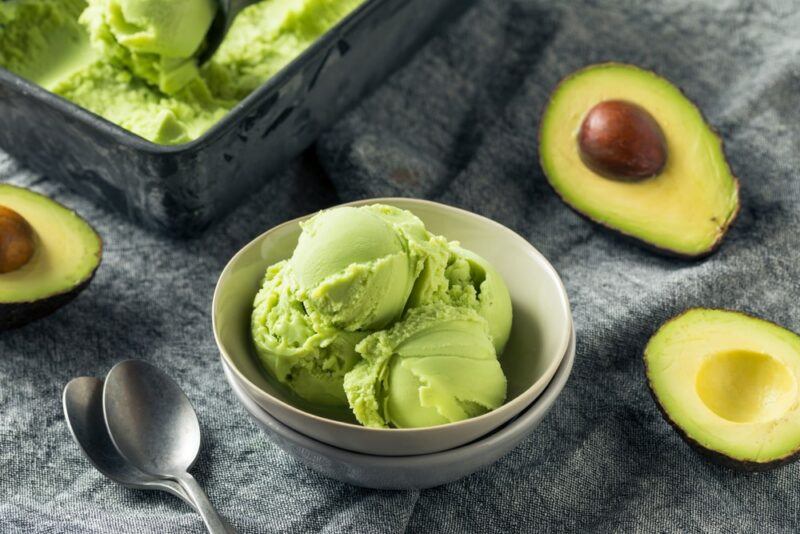
It’s not just the flavor of avocados that makes them popular. Many people love the creaminess of avocados as well.
This creaminess is one reason why avocados can be used in so many different recipes. We’re not just talking about avocado dips and smoothies either. You can even use avocados to make brownies, pudding, and ice cream
Or, for something different, try baking avocados in the oven for a little while. Baked avocados are simply delicious and you can add an egg, bacon, or other ingredients into the hole to make them even more interesting.
How Avocados Can Be A Problem
The Fat And Calorie Content
While avocados do contain plenty of healthy fats, there’s no denying the fact that they’re high in fat – and calories. In fact, a whole avocado often contains around 300 calories. This means you’re getting upwards of 150 calories in half an avocado (the amounts can vary somewhat, but you’ll never find a low calorie avocado).
This is a decent number of calories for a fruit that’s meant to be good for you. If you’re following a calorie restricted diet, avocados may simply be too calorie dense.
Don’t forget about the fat either, as high fat foods aren’t always the best choice. For example, some health conditions lead to problems with fat digestion. People with such conditions may need to decrease fat intake, which could involve avoiding avocados.
The Omega 6 Fat Content
While avocados are fantastic for healthy fats, we do need to talk about their omega 6 content. Omega 6 is a type of polyunsaturated fat, like omega 3.
Omega 6 and omega 3 are both incredibly good for you. But, their effects vary somewhat depending on the ratio of omega 6 to omega 3. Having too much omega 6 in your diet and not enough omega 3 can increase inflammation, which may then raise your risk of some diseases.
Most of us get a lot of omega 6, particularly from oils and processed foods, and not enough omega 3. Avocados don’t help this balance at all.
Does this mean you should avoid avocados?
Not really. You’ll see more benefits by sticking with avocados and cutting out less healthy sources of omega 6. Just keep this issue in mind if you’re eating avocados every day. Besides, most of us get much more omega 6 from processed foods and ingredients like canola oil than we ever will from avocados (which also makes avocado oil a useful choice).
Could Interact With Blood Thinning Medications

Some theories suggest that avocados reduce blood clotting. This effect may partly come from the vitamin K found in avocados and partly from salicylates.
This natural blood thinning effect isn’t always a bad thing, as it reduces the risk of dangerous blood clots. However, too much blood thinning is dangerous as well.
Because of this, anyone taking blood thinning medication needs to be very careful with natural blood thinners. Talking to your doctor about your diet can help. This doesn’t mean you’ll need to give up avocados. Instead, your doctor may be able to adjust your medication dose to account for your avocado consumption.
Their Oxalate Content
For some reason, oxalates often get overlooked when we’re talking about avocados. This is a pity, as the oxalates in avocados are one reason that you should be a little careful with the fruit.
Oxalates themselves are naturally occurring compounds. You’ll find them in a variety of nuts, seeds, and legumes, along with ingredients like spinach, rhubarb, and even chocolate. Despite how common they are, oxalates can be a problem, as they can increase your risk of kidney stones.
People who are vulnerable often need to cut their oxalate intake down to around 100 mg per day or even less than that.
Avocados aren’t incredibly high in oxalates, as you’re getting around 20 mg of oxalates in a whole avocado (and many people eat half an avocado or less in a serving). Still, if you’re eating other oxalate rich foods, the oxalates in avocados could start to be an issue.
Can Avocados Help You To Lose Weight?
Avocados are sometimes seen as a weight loss food, partly because they feature on the keto diet. Avocados also happen to high in fat and relatively low in sugar, making them more satisfying than most other types of fruit.
Can they help you lose weight? That depends.
If you’re following a keto diet, then yes, avocados could be a good fit. Many people have successfully lost weight through the keto diet. Some even find it an easier approach than regular dieting, as you don’t need to cut out fatty foods.
Avocados are still viable if you’re not following keto. Indeed, some research shows that having half an avocado per day increases satisfaction and decreases hunger – effects that could easily help you lose weight.
You will, however, need to be careful with your calories. After all, simply adding avocado to your current diet isn’t likely to help, as you’d just be increasing your calorie intake. The trick is to eat avocados instead of some less healthy foods.
For example, you could try to replace some high calorie ingredients with avocado, like having avocado on toast instead of butter or cheese. Making swaps like this allow you to enjoy avocados without stress. The idea is powerful for your heart health too, as you’re decreasing saturated fat intake at the same time.
How Much Avocado Is Too Much?
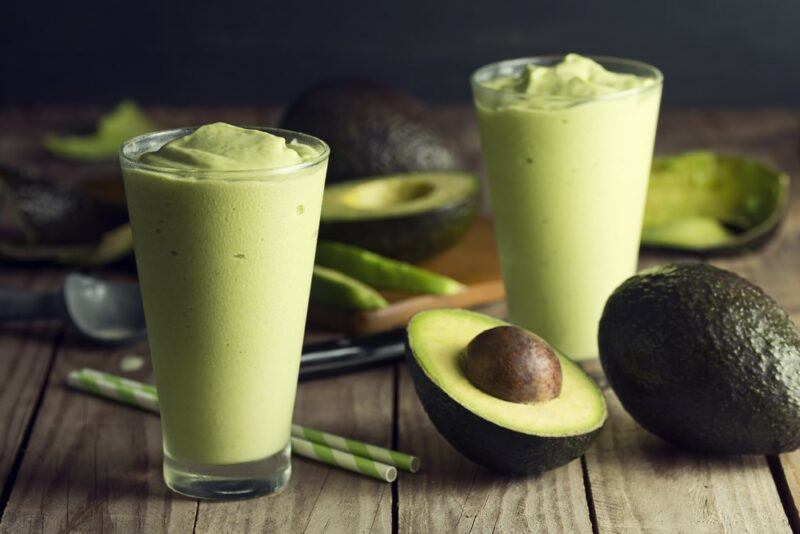
Avocados are high in fat and calories, so where do you draw the line? The answer mostly depends on the rest of your diet. If your calorie intake was low enough, you might even be able to have an avocado or two every day without any ill effects.
Most people, however, will need to stick to no more than half an avocado per day. This serving still gives you plenty of benefits, while keeping your calorie intake in check.
You might even need to cut your intake down further and have a third or a quarter of an avocado per day. Think about your total calorie intake and see how much space there is for avocado.
Final Thoughts
Despite their high fat content, avocados are clearly healthy. They provide you with plenty of beneficial nutrients, while the balance of high fat to low carb content is perfect for anyone following a keto diet.
The biggest issue is the calorie content. Seriously, you’re getting around 300 calories in an avocado, which is a lot. These calories could easily lead to weight gain unless you’re careful with the rest of your diet.
Be particularly wary of so-called healthy desserts that rely on avocado. For example, avocado chocolate mousse and avocado ice cream sound healthier than processed versions, yet they’re often still very high in calories.
Frequently Asked Questions
Is It Ok To Eat An Avocado Every Day?
Eating a whole avocado every day can be beneficial. Doing so has been linked to better cholesterol levels and decreased heart disease risk, among plenty of other benefits.
But, there are two big challenges.
First, it’s surprisingly tricky to get a whole avocado into your meals every day. You might need to get creative with some of your dishes and use a large amount of avocado.
Second, a whole avocado contains around 240 calories. Fitting these calories into your diet isn’t always easy. You might need to do some careful meal planning and cut out a few of your favorite treats.
Are Avocados Good For Diabetics?
Unlike most fruits, avocados are low in sugar and high in fat. This is an excellent balance for diabetics, especially as there’s still a decent amount of fiber.
Plus, the glycemic index of avocados is just 15, which means the fruit should have a low blood sugar impact.
Are Avocados Keto Friendly?
Yes. Half an avocado only contains around 1 net grams of carbs and a lot of fat, which is ideal for keto dieters. In fact, there are countless avocado keto recipes, including chocolate pudding, low carb avocado toast, tuna melts, and many more.
Are Avocados Good For Constipation?
Avocados are a surprisingly good source of fiber, which could help to soften your stools and decrease constipation. However, they don’t have many other constipation-relieving properties, so their effect is likely to be mild.
Are Avocados Fattening?
Avocados can promote weight gain, as they’re high in calories and fat. However, fat alone doesn’t make you fat. Instead, your weight is more strongly linked to your total calorie intake.
As such, you can easily eat avocados without gaining weight. Many people even use avocados as part of a weight loss diet.

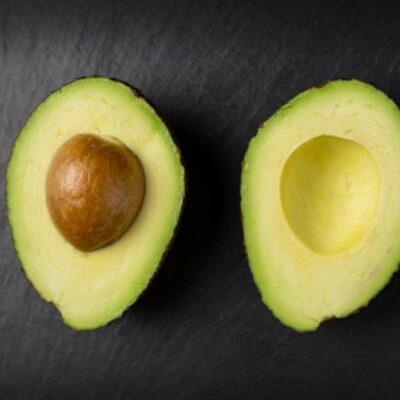



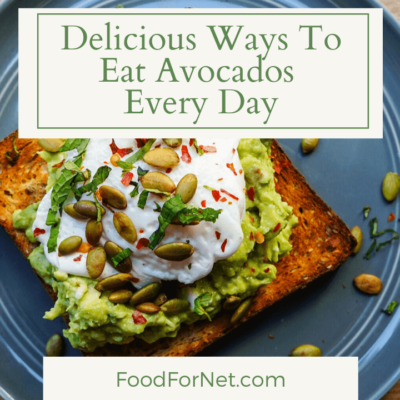

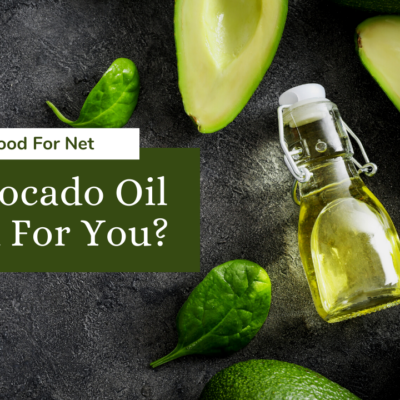

 The Best Rum For Baking
The Best Rum For Baking
Leave a Reply